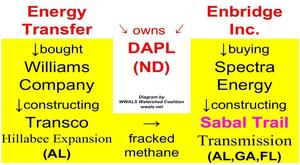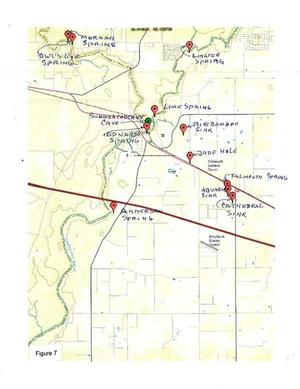“We reiterate our concern and position that an appropriate project review for 401 water quality certification is not yet possible since complete substantive and important information about the proposed hydrogeologic effects of this project relative to the surrounding landscape has not yet been submitted by the applicant. …So substantial, so massive, so transformative is the effect to wetlands contemplated at the Twin Pines site that you no longer have in place the original wetland to be impacted.” The Georgia Environmental Protection Division (GA-EPD) wrote that to the U.S. Army Corps of Engineers (USACE) in response to the thousands of pages of low-level data but only a few pages of analysis that Twin Pines Minerals (TPM) has sent those agencies.
Twin Pines Minerals is still failing to hoist its burden of proof that its propsosed titanium strip mine would not jeopardize this national treasure, the Okefenokee Swamp, the headwaters of the Suwannee and St. Marys Rivers.
![[Tribal Grounds west along GA 94 to TPM equipment, 12:38:38, 30.5257540, -82.0411100]](https://www.wwals.net/pictures/2019-10-05--equipment-tpm/triba-grounds-to-TPM-equipment.jpg)
Photo: John S. Quarterman for WWALS, of Tribal Grounds west along GA 94 to TPM equipment, 12:38:38, 30.5257540, -82.0411100, on Southwings flight, pilot Allen Nodorft, 2019-10-05.
See also
pictures from that flight by Wayne Morgan.
Maybe the City of Folkston and Charlton County Development Authority (CCDA) might want to rethink its assertion in the Charlton County Herald that “We would not support anything that would jeopardize this national treasure.” GA-EPD’s opinion is much like what U.S. EPA said, that the mine would have “substantial and unacceptable impact”.
CCDA wrote, Continue reading

![[the proposed project will have a substantial and unacceptable impact on aquatic resources of national importance.]](https://www.wwals.net/pictures/2019-10-03--epa-usace-tpm/SCAN0007-0001.jpg)
![[TPM Equipment closeup, Wayne Morgan]](https://www.wwals.net/pictures/2019-10-05--equipment-tpm/WAM_0876.jpg)
![[Convenience of private profit is no excuse to risk Okefenokee --Suwannee Riverkeeper]](https://www.wwals.net/pictures/2019-09-25--tpm-full-page-ad/jsq-0.jpg)
![[CharltonCounty-Herald 25Sept2019-0001]](https://www.wwals.net/pictures/2019-09-25--tpm-full-page-ad/CharltonCounty-Herald_25Sept2019-0001.jpg)
![[Figure 8. Drawdown 2930 days]](https://www.wwals.net/pictures/2019-07-24--tpm-ga-epd-water-withdrawal/424772086-7-24-19-Final-Application-for-Industrial-Groundwater-Withdrawal-Permit-0044.jpg)
![[the 404/401 permit application as submitted thus far is not complete]](https://www.wwals.net/pictures/2019-09-12--epa-ga-epd-usace-tpm/SAS-2018-00554-Charlton-0917-SP-HAR-0005.jpg)



